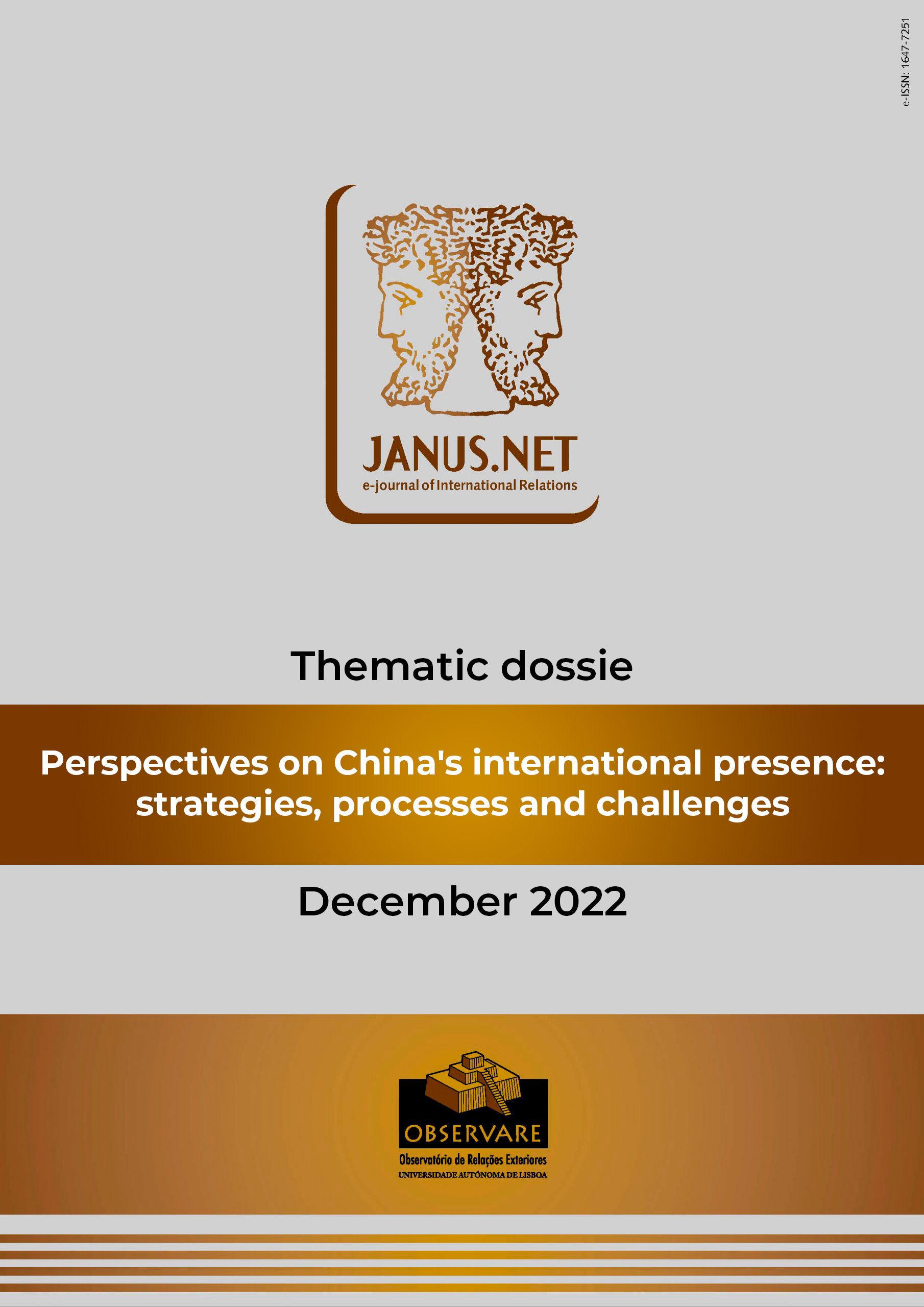This paper aims to provide an overview of the presence of Chinese in Brazil, who are estimated to be about 300,000 in number. Based on the dialectical relationship between Brazil and China, this research works with the following hypotheses, which are also the lines of problematization: China expels; Brazil receives; Sino-Brazilians emerge (the synthesis of the process). The methodology consisted initially of bibliographical research. Later on, secondary data was collected from the Museu da Imigração in São Paulo. The bulk of the empirical material consists of interviews with five Chinese individuals, providing qualitative data, a transcription and an analysis (application of questionnaires). In addition, a photographic and documentary survey of the Chinese presence in São Paulo at specific points in the city was carried out. The research began in 2003, and the fieldwork and interviews were carried out in 2006. After this period, the author studied Asian-Brazilian communication in social networks. An analysis of all the materials was then made. For the concept of diaspora, references from Stuart Hall and Adam McKeown were used. In the socioeconomic analysis, the Marxian concept “industrial reserve army” accounts for the presence of large population contingents moving around the world. The pull and push mechanism between populations and territories is a construct used by Paul Singer and Herbert Klein to explain population movement. Regarding the construction of a Brazilian identity that would also include Asians and their descendants, the works of Jeffrey Lesser are worth mentioning. Concerning the insertion of the Chinese into Brazilian society, the theories by Sigmund Freud and Eric Hobsbawn were used. Brazil, due to the development of its market, has become a pole of attraction for people from all over the world, including the Chinese. As the interviewees said, Brazil is seen as a country “under construction”. And today the Chinese have a place in the construction of a Brazilian identity.
A diáspora chinesa no Brasil: dispersão, mitologia da terra de origem e promessa de retorno
Doutor em Ciências Sociais, Mestre em Comunicação e Semiótica, Graduação em Ciências
Sociais. É pesquisador do Núcleo de Estudos Brasil-China, Faculdade de Direito, Fundação Getúlio
Vargas (Brasil). Foi Professor de História da Ásia Moderna na University of Miami, Professor de
Sociologia e Filosofia de Universidades, entre as quais a Auckland Universit, University of
Syracuse, University of Washington, University of Colorado Boulder, University of Cincinnati,
University of Alberta e University of Illinois. Beneficiou de uma Bolsa do Governo Brasileiro para
pesquisa doutoral em Ciências Sociais (CNPq) e de uma Bolsa integral do Governo Chinês para
estudos de língua e cultura chinesa.
Resumo
Palavras-chave
Como citar este artigo
Véras, Daniel Bicudo (2022). A diáspora chinesa no Brasil: dispersão, mitologia da terra de
origem e promessa de retorno. Janus.net, e-journal of international relations. VOL13 N2, TD1
– Dossiê temático “Perspectivas sobre a presença internacional da China”, Dezembro 2022.
Consultado [em linha] em data da última consulta, https://doi.org/10.26619/1647-7251.DT22.2
Article received on 30 April, 2022 and accepted for publication on 15 May, 2022















